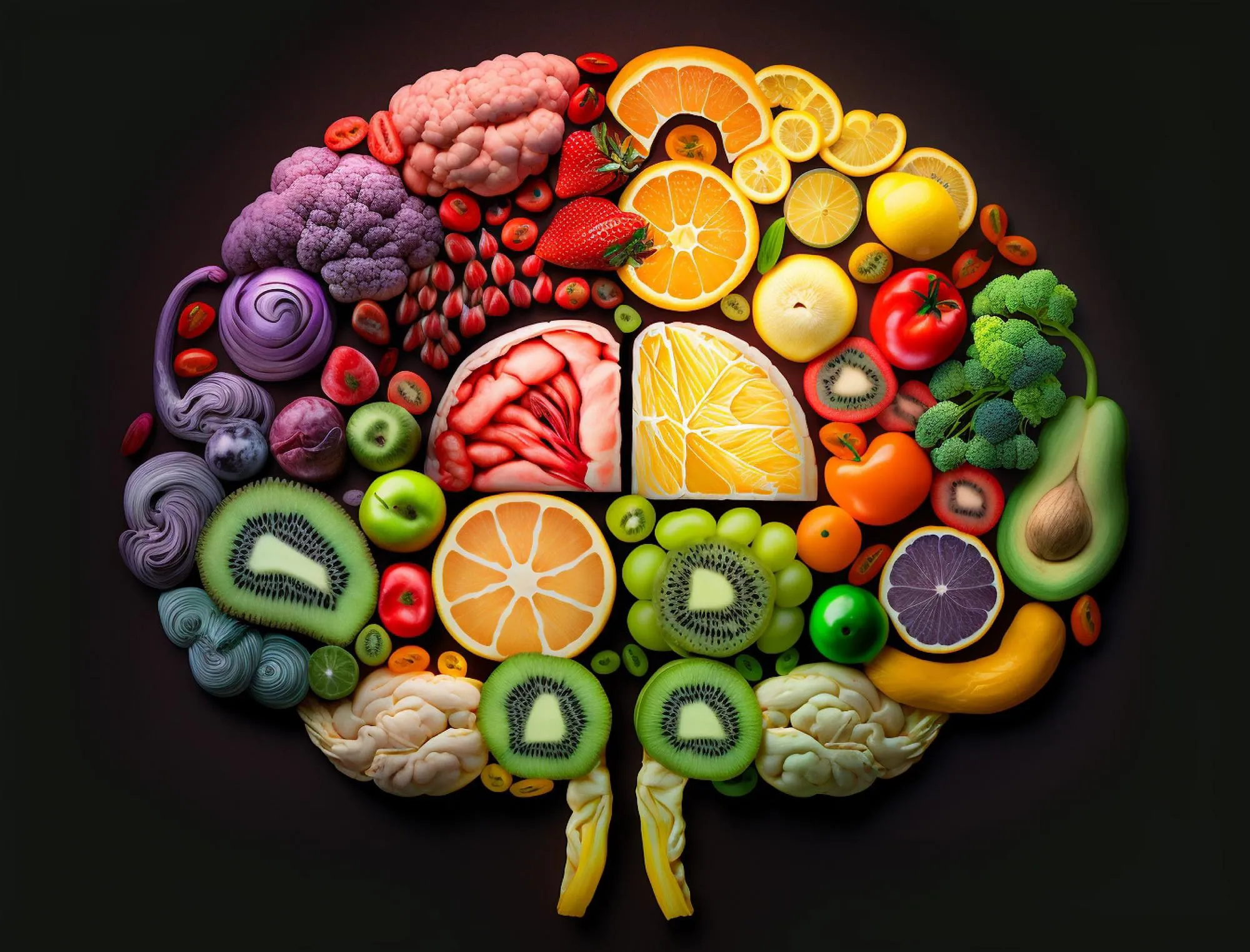Introduction
In pursuit of a healthier, longer life, humans have sought various methods to enhance their vitality and reduce the risks of age-related diseases. One approach that has gained attention is the practice of caloric restriction, intermittent fasting, and regular exercise—strategies known for activating the body’s defensive cellular responses that include autophagy, DNA repair, and the induction of antioxidant enzymes. However, recent research points to a more tantalizing aspect of our diet that could offer similar benefits: the phytochemicals found in a profusion of vegetables, fruits, and mushrooms. This article delves into the findings of a study published in “Trends in Endocrinology and Metabolism,” which posits that the key to health and longevity might just be waiting on our plates.
The Power of Phytochemicals: A Deep Dive into Cellular Benefits
The study in discussion, bearing the DOI 10.1016/j.tem.2019.04.001, [1] unveiled that compounds such as alkaloids, polyphenols, and terpenoids, abundant in plants and fungi, activate stress resistance pathways in cells—a process mimicking the effects of caloric restriction and fasting. The team led by Jan J Martel and colleagues from the Center for Molecular and Clinical Immunology at Chang Gung University, along with other notable institutions, have brought to light an important aspect of how we might influence our healthspan, i.e., the period of life spent in good health.
The research indicates that many beneficial effects attributed to a diet rich in fruits and vegetables might be due to the hormetic effects of phytochemicals. Hormesis refers to the adaptive response of cells and organisms to moderate stress, which ultimately results in a strengthening of the system. In the context of phytochemicals, it suggests that the moderate stress inflicted upon consumption leads to a boost in cellular defenses, which plays a pivotal role in protecting against cellular damage, mutations, and oxidative stress caused by reactive oxygen species.
Understanding How Phytochemicals Mimic Caloric Restriction
Caloric restriction has been known for decades as a reliable way to extend lifespan in various organisms. The protective mechanisms instigated by this process involve the downregulation of growth pathways and an upregulation in cellular defense mechanisms. Phytochemicals have been found to induce similar pathways. Their interaction with cellular signaling cascades triggers adaptive stress responses, much like what happens during periods of limited caloric intake.
Evidence from Research
Martel et al. collated evidence from various studies demonstrating the hormetic effects of phytochemicals, providing fascinating insights. One such study, as cited in their published work, revealed that polyphenols found in grapes and berries activate the expression of longevity genes [2]. Another research highlighted that sulforaphane, a phytochemical in broccoli, enhances the detoxifying capabilities of cells [3]. Continual research underlines the profound influence phytochemicals have on promoting health and potentially delaying the effects of aging.
The Future of Dietary Supplements and Aging
With the growing understanding of hormesis and phytochemicals, there’s a burgeoning interest in developing dietary supplements aimed at replicating these effects without necessarily altering one’s diet drastically. These caloric-restriction mimetics could pave the way for preventative health strategies targeting age-related ailments [4]. As researchers bottom out the underlying mechanisms, such supplements may become an integral part of nutrition in the years to come.
Challenges and Considerations
Although the effects of phytochemicals are promising, it’s crucial to understand that they are not a panacea. The interactions between different compounds in foods are complex, and their effects can vary based on genetics, lifestyle, and environmental factors. Moreover, most research has been conducted in controlled laboratory settings, and translating these findings into practical dietary recommendations remains challenging.
Conclusion
The work of Martel and colleagues opens a new chapter in our quest for longevity and disease prevention, one where everyday foods hold the potential to enhance our health significantly. As the research on phytochemicals advances, so too does the hope of incorporating them more effectively into our diets, thereby improving our health and longevity. The article provokes a vital question: Are we underestimating the power of the plant and fungi kingdoms in influencing our biological destiny?
As we ponder over this, one thing is for sure: a diet abundant in varied vegetables, fruits, and mushrooms isn’t just a feast for our taste buds but also a feast for our cells.
References
[1] Jan J. Martel et al., “Hormetic Effects of Phytochemicals on Health and Longevity,” Trends in Endocrinology and Metabolism, vol. 30, no. 6 (June 2019): 335-346, DOI: 10.1016/j.tem.2019.04.001.
[2] Lamming D.W., et al. “Restriction of dietary nutrients necessary for the mTOR and IGF-1 growth factor signaling pathways slows aging and enhances health span in rodents.” Experimental Gerontology, vol. 48, no. 10 (2013): 1030-1038. DOI: 10.1016/j.exger.2013.04.005.
[3] Houghton C.A., et al. “Sulforaphane: Its ‘Coming of Age’ as a Clinically Relevant Nutraceutical in the Prevention and Treatment of Chronic Disease.” Oxidative Medicine and Cellular Longevity, vol. 2019 (2019): 2716870. DOI: 10.1155/2019/2716870.
[4] Madeo F., et al. “Caloric restriction mimetics: Towards a molecular definition.” Nature Reviews Drug Discovery, vol. 13, no. 10 (2014): 727-740. DOI: 10.1038/nrd4391.
[5] Gomez-Pinilla F., et al. “The influences of diet and exercise on mental health through hormesis.” Ageing Research Reviews, vol. 7, no. 1 (2008): 49-62. DOI: 10.1016/j.arr.2007.04.003.
Keywords
1. Phytochemicals and longevity
2. Health benefits of vegetables and fruits
3. Hormesis in diet
4. Caloric-restriction mimetics
5. Dietary supplements for aging
